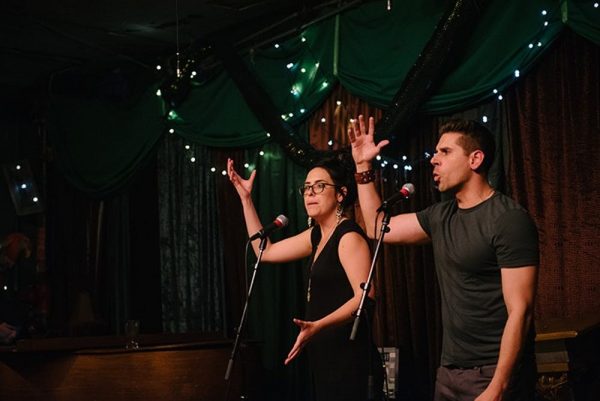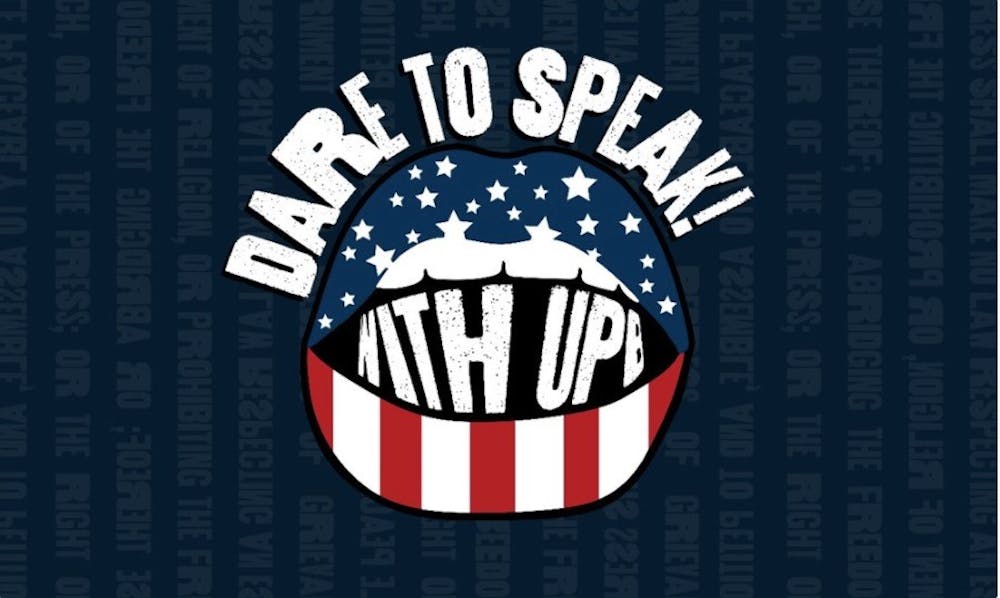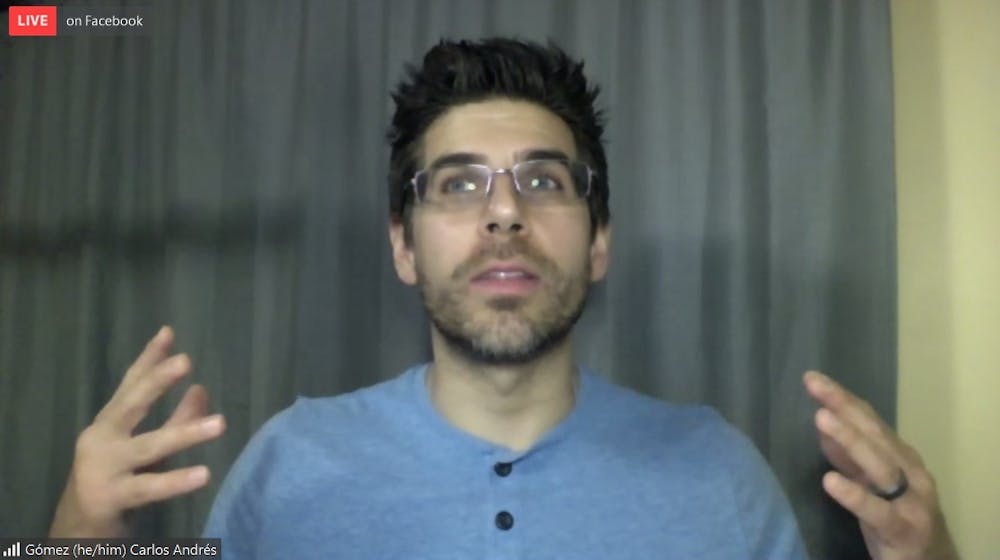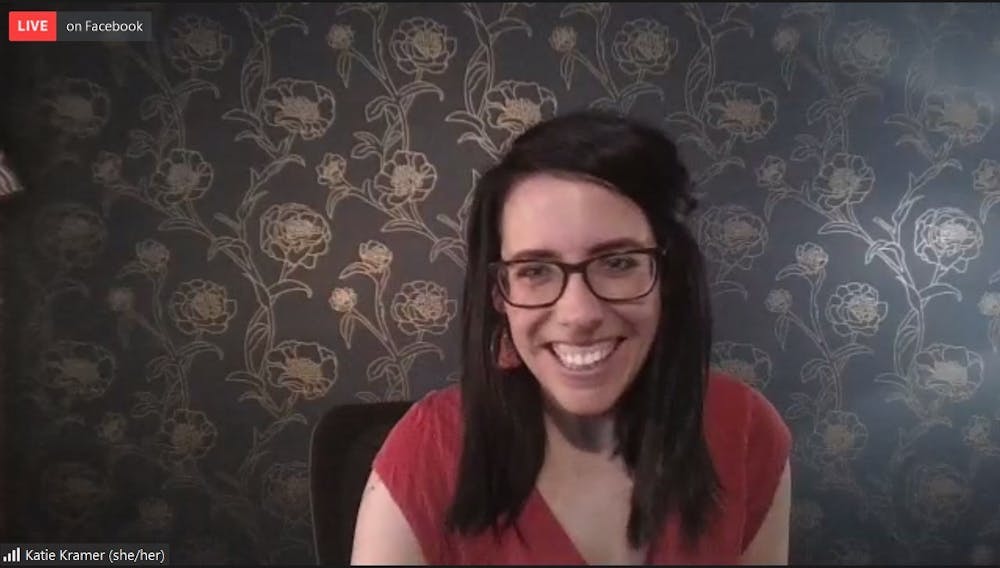
The opinions and views expressed in this article are those of the author and do not reflect the opinion of Byte or Byte’s editorial board.
Ball State’s 41st annual Unity Week Celebration was held the week of Feb. 1. Unity Week only comes around once a year, but it aims to encourage a long-lasting understanding of diversity and solidarity amongst Ball State students through a series of entertainment-based and informational events. On Feb. 4, “Dare to Speak” invited students to a zoom call with speakers Carlos Andrés Gómez and Katie Kramer. There, attendees found themselves in a diverse community and a conversation of equity. Students and speakers alike shared their stories and provided strength to those who reached out.
Strength can come in many different colors, ages, sizes, genders, social-economic statuses, sexualities, etc., and the “work is never done” when it comes to expressing this. Nor is the work ever done when it comes to expressing how each person, no matter social identity, should be granted the same level of respect and safety. “Dare to Speak” expressed all this through the art of poetry. Providing a voice to many who may be speechless regarding the topic of their own social identity.
The Art of Justice

“Dare to Speak” was created through the partnership of Gómez and Kramer. When asked how “Dare to Speak” came to be, Gómez said they were continuously booked at the same venues and after a while, started collaborating. They found their writing adhered to the same idea of social justice. Now, together, they read poetry to communities in order to bring attention to many societal discrepancies. Topics include gender and sexuality, race and allyship, and mental health and grief. All of which, at least one speaker can provide a personal experience with. Placing empathy and vulnerability within each community they speak to. Paving the way for promoting allyship to those who also identify within each of these topics and making discussion with those who feel the same easier.
During the zoom call, Gómez and Kramer talked about how strange it is to be reading poetry over the internet or to be communicating only with our eyes because of masks. Kramer said it has forced us to become empathetic and patient because of the challenge masks and technology now play in interacting with people. We are forced to use these characteristics when we can’t hear people very well or vice versa because of masks. Another instance would be the tendency for web calls to continuously have a network connection, something we faced in the meeting. Kramer tied this idea into how society should focus these characteristics on social justice and allyship.
Vulnerability is not a weakness; it is a strength

Screenshot taken by Kellyn Harrison
Independently, each provided their own stories and applied a poem to the topic presented in their experiences. Gómez is a Colombian American poet and author. He is known for his poems “Where are you really from?” and “What Latino Looks Like.” Both of which talk about his experiences living as a Latinx in the United States, where justification of nationality is evident. Where people doubting your answer to “Where are you from” let alone asking the question, is apparent. Where stereotyping social identities and making assumptions is the norm. A definition Gómez used to describe “playing Wheel of Fortune” with someone’s nationality or race. This was what Gómez talked heavily about in the call, especially after opening up about concerns he had about his biracial children growing up in the United States. After showing this vulnerability, there were several students who also shared their experiences with people questioning their nationality and race. Many of which pointed out a trend of people asking for proof of their race or nationality. Gómez explored the idea of questioning the validity of someone’s social identity when he stated, “What does someone’s race or identity have to do with anything?” This is related to society’s need to establish one’s social identity in a conversation for the sake of separating the identity of those involved. Isolation and objectification both being huge underlying themes within the discussion.

Screenshot taken by Kellyn Harrison
Kramer identifies with the LGBTQ+ community and talks heavily about what it means to be human. Her poems discuss what it means to grow up as a queer woman and reach a point of healing while grieving. Through her poems, she advocates for trans rights, mental health awareness, and feminism. All of which push for more awareness of the diversity of gender and mental health of those around us. Pushing for more respect for those within society. Kramer touched on all of these ideas during the meeting. She pointed out not only the importance of understanding each community/social identity, but understanding that sexual identity, gender, and race should not be treated separately. That they should all be treated with equal respect, especially when they intersect. Kramer stated, “Just because you identify as queer does not mean you have overcome gender. Gender and sexuality are two different things and they shouldn’t be.” The poet referencing the major divide between transgender and gay people within the LGBTQ+ community. Furthermore, Kramer stressed that gender and sexuality are only your business. They are your business to share with people and shouldn’t be forced if uncomfortable. The call for safety and the end of violence was a large topic within the discussion. Kramer provided examples of her family having to think about possible threats just because of her and her husband’s social identity. All of which opened the discussion of promoting the overall safety for all social identities facing a fear of oppression and violence.
When asked how the poets keep from freezing when talking about emotional topics, they concluded vulnerability is not a weakness, instead, it is a strength. Instead of viewing your vulnerability as a flaw, view it as a stepping stone to personal growth and cultivating stronger interpersonal relationships. Kramer said people look for vulnerability because it makes people feel more connected to each other especially during a time of isolation and fear. This is why Kramer and Gómez share their stories with others in hopes of encouraging strength, unity, and diverse communities. Something Ball State’s Unity Week strives for each year it is held. Implementing the hope that such values will be upheld well into the future.